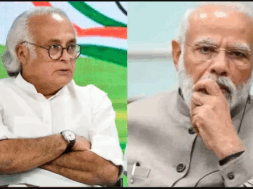
Rising economy: India needs 1 mn AI-trained high-tech engineers in 2-3 years
Virendra Pandit
New Delhi: India’s booming USD 250 billion technology sector, which employs around 5.5 million people, will need one million high-tech engineers trained in Artificial Intelligence (AI) in the next two to three years as the South Asian nation races to become the world’s third-largest economy.
Industry body NASSCOM has estimated a demand-supply gap for digital talent to widen from 25 percent now to 28 percent in 2028, the media reported on Thursday.
India’s technology sector will need these engineers with advanced skills in AI and other capabilities over the next 2-3 years. Unless the government significantly jacks up education and training in India, this demand cannot be met.
According to Sangeeta Gupta, Senior Vice President, and Chief Strategy Officer at the National Association of Software and Service Companies (NASSCOM), the technology sector will need to reskill over half of its existing workforce to take up jobs in fields such as AI, big data analytics and cyber-security. New college graduates will only fill a quarter of the advanced technology jobs needed.
The high-tech industry cannot march ahead with just a one-time up-skilling. It must be a relentless journey amid a fast-changing digital landscape, she said, as she underlined that the employability of the workforce is a huge challenge.
India’s USD 250 billion tech sector is important to the economy, employing about 5.4 million people. Technology services make up about 7.5 percent of the country’s USD 3 trillion-plus gross domestic product (GDP) now.
The lack of a trained workforce is already biting the industry. For example, IT giants like Tata Consultancy Services Ltd. (TCS) are struggling to fill positions because of a wide mismatch between the skills of the workforce and the requirements of the job. That threatens to put Indian IT companies at a disadvantage against global rivals like International Business Machines Corp. (IBM) and Accenture Plc.
TCS said in June it could not fill up nearly 80,000 jobs because of the skills gap. It’s also doubled the number of its employees trained on AI in 2023-24. Larsen & Toubro Ltd., India’s largest engineering and construction firm, said last month that its IT and IT-enabled Services (ITeS) unit has a shortage of 20,000 engineers.
Gupta said the root of India’s skill gap lies with the country’s poor schooling system, from lower grades to high school. Colleges don’t provide students with enough practical skills essential for the job market, she said.
According to former RBI Governor Raghuram Rajan, India’s poor schooling will hinder growth prospects in a country where more than half of the 1.4 billion population is below the age of 30.
Ironically, in a recent report, the International Labour Organisation (ILO) revealed that highly educated young people are more likely to be unemployed than those without any schooling.













